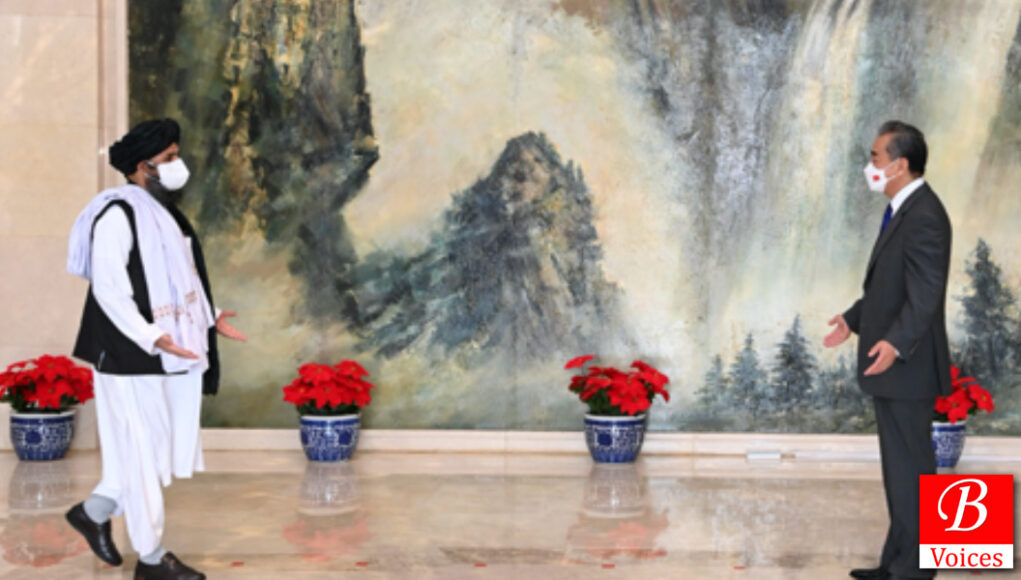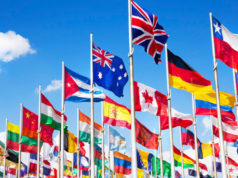 Junaid Afridi
Junaid Afridi
The security situation in Afghanistan is rapidly deteriorating. In recent weeks The Afghan Taliban have escalated their assaults made great strides on the battlefield. They have captured more than 100 districts and their fighters have surrounded most of the provincial capitals and also takes a string of major Afghan border crossings, including with Pakistan, Iran, Uzbekistan, and Tajikistan.
Afghanistan is on the edge of civil war, with security forces and the government on the point of collapsing, and every neighbor is turning to Afghanistan for strategic depth. As a result, the situation in Afghanistan will deteriorate much more. Each neighbor has a stake in Afghanistan and is concerned that the country’s upheaval will affect them.
The presence of the United States in Afghanistan provided some sort of assurance to everyone in the region that the country would not fall to Al-Qaeda or the Islamic State, or become a refuge for terrorist groups. However, this facility is not going to be available anymore, meaning Al-Qaeda or the Islamic State and other regional militant groups are likely to gain more maneuverability, freedom.
PAKISTAN
There is a historic narrative that Pakistan is behind the Afghan Taliban or they are controlling the Taliban. Islamabad had leverage on the Taliban which Pakistan accepts but that leverage is now minimal as US troops are leaving Afghanistan which puts the Taliban in a commanding position and they would only talk on their terms which is unacceptable to the Afghan government.
In Pakistan, there is a soft corner for the Taliban in general. But Islamabad would never want a complete takeover of the Taliban in Afghanistan. Both countries are connected geographically and culturally, and the uproar in Afghanistan will have a spillover in Pakistan.
Pakistan shares a 2,611-kilometer (1,622-mile) border with Afghanistan, faces a likely fallout from the Taliban advances, mainly because it has prompted the Pakistani Taliban, called the Tehreek-e-Taliban Pakistan (TTP), which operate in the country’s northwestern region. Afghan Taliban’s attempt to take over Kabul by force will strengthen TTP in Pakistan.
It should be noted at this point, more than 50 Pakistani soldiers have martyred in attacks by groups that are based in Afghanistan. As the instability in Afghanistan deepens, Pakistan cannot expect it to be free from violence.
Moeed Yusuf, Pakistan’s national security adviser, said last week that the security situation in Afghanistan was “extremely bad and out of Pakistan’s control.”
Tehreek-e-Taliban Pakistan (TTP) leader Noor Wali Mehsud CNN in an interview to CNN said
“Our relations with Afghan Taliban are based on brotherhood, sympathy, and Islamic principles the victory of one Muslim is helpful for another Muslim, but how the victory of Afghan Taliban will prove helpful for the Pakistani Taliban, time will tell,”
He further said “Our fight is only in Pakistan; we are at war with the Pakistani security we are firmly hoping to take control of the Pakistani tribal border regions, and make them independent”
INDIA
On the other hand. Despite being a big supporter of the Ghani government as the Taliban made advancement India has also started reaching out to the Taliban.
India has traditionally worked under the charge of the United States in Afghanistan and cultivated a strong relationship with successive Afghan governments, investing heavily in the development and infrastructure of the war-ravaged country, Increasing violence would disrupt the progress of these projects, India has made investments of more than $3 billion in Afghanistan in various infrastructure projects Also India considers Afghanistan as a gateway to Central Asia by building connectivity through Iran’s Chabahar Port
The rise of the Taliban might spell more challenges to India’s national security A Taliban takeover would raise security concerns about the spillover of the Taliban to Jammu and Kashmir. It is vital for Indian policymakers that the talks should result in preventing the Taliban from supporting Kashmiri jihadists in India.
RUSSIA
Russia is also filling the security void left by US troops’ withdrawal from Afghanistan. Foreign Minister Sergei Lavrov praised the militant group this week during a webinar said, “The statement I’m talking about sends a very important signal that [the Taliban] are sane people,” also, Russia’s envoy for Afghanistan calling its rapid takeover of border areas “positive” for regional security.
According to the Moscow Times In early July, a Taliban delegation visited Moscow and reportedly gave Russia assurances that they would not seek to expand their conflict with the central government in Kabul beyond the country’s borders.
“The Taliban representatives were saying all the right words, that they will not have any expansionist goals even if they win in Afghanistan, and that they are willing to work with Russia to improve regional security,” says Andrey Kortunov, head of the Russian International Affairs Council, which is affiliated with the foreign ministry.
CHINA
China is also in continuous talks with the Taliban as their strategic depth is to expand Belt and Road initiative to Afghanistan. China wants assurances from the Taliban to counter any anti-china sentiments in Afghanistan.
Taliban political chief with a nine-member delegation is already in china, for talks, they have met Chinese State Councilor and Foreign Minister Wang Yi on Wednesday. “Wang called on the Afghan Taliban to draw a clear line from East Turkestan Islamic Movement (ETIM) which poses direct threats to China’s national security and territorial integrity, and other terrorist groups, and resolutely and effectively crack down on them, to remove obstacles and create favorable conditions for regional peace, stability, and development”.
According to Taliban spokesperson “Mullah Baradar Political chief of Afghan Taliban give assurance to china that the territory of Afghanistan would not be used against the security of any country”.
These all regional powers should pressurize both the Taliban and Ghani government for the talks and peaceful solution than they go for getting assurances from the Taliban. They had to realize if Afghanistan goes into civil war then it’s impossible to stop the growth of ISIS or any other terrorist organization in Afghanistan.
The writer is an Engineering student from Karachi who also has a deep interest in regional politics and occasionally writes on regional politics and strategies.
Disclaimer: Views expressed in this article are those of the author and Balochistan Voices do not necessarily agree with them.
Share your comments!








